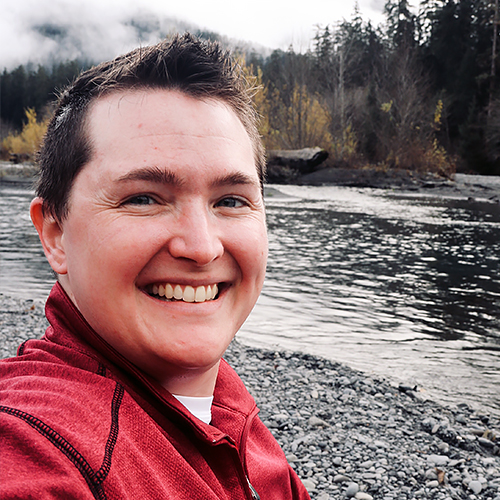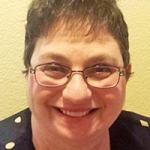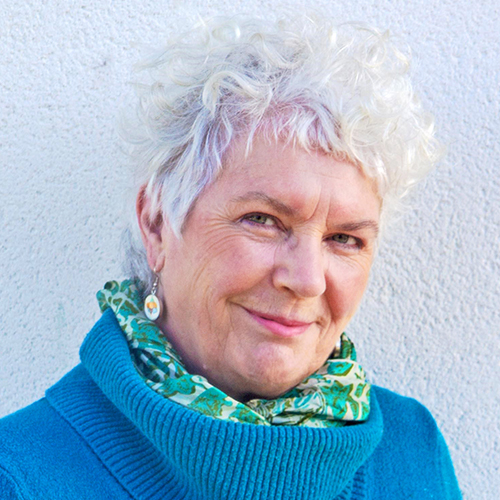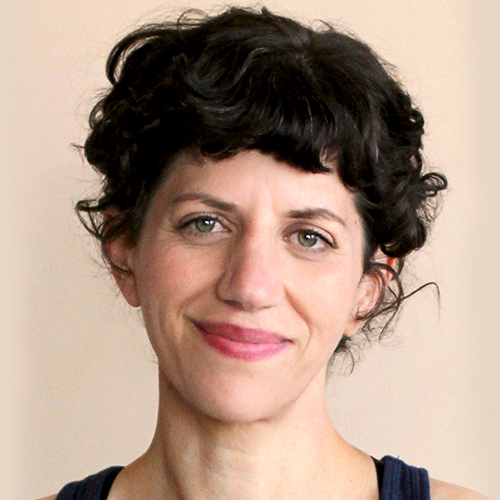 IBCLC Detailed Content Outline: Psychology, Sociology, and Anthropology Focused CERPs - Section V
IBCLC Detailed Content Outline: Psychology, Sociology, and Anthropology Focused CERPs - Section V
Access CERPs on Psychology, Sociology, and Anthropology for the IBCLC Detailed Content Outline recertification requirements. Enjoy convenient on-demand viewing of the latest Psychology, Sociology, and Anthropology focused IBCLC CERPs at your own pace.
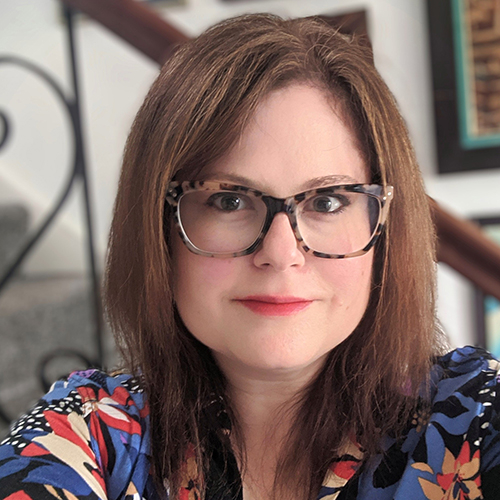
Providing Culturally Sensitive Support for Breastfeeding Muslim Families

Tamara Drenttel Brand holds an MA in Near Eastern Studies from the University of Arizona and a Master’s in Public Health (MPH) from the American University of Beirut. She spent 10 years in the Middle East, where she worked as a public health practitioner, infant and maternal health consultant and an IBCLC. She has supported breastfeeding dyads from all over the world both in private practice and as a volunteer. In 2011, she founded and still actively facilitates “Mama 2 Mama Beirut Breastfeeding Support,” the largest breastfeeding peer support network in the Middle East (currently at 25k+ members). Additionally, she founded Galactablog, a professional group for lactation specialists and those aspiring-to-be (currently at 4.7k+ members) and has authored several articles for La Leche League’s monthly leader publications in both the Middle East and Ireland.
She is currently an international speaker on the topics dealing with breastfeeding in the Middle East, innovative lactation teaching strategies, working in resource-scarce settings, providing culturally sensitive lactation support, developing and implementing peer counselor training programs, mast cell disease and other related topics. Due to her own chronic health conditions, she has a special interest in educating others about mast cell disease and supporting those with chronic illnesses. She currently resides in a seaside village in Ireland with her family.
Topic: Contextualizing Breastfeeding in Lebanon - [View Abstract]
Topic: Lactation Education Outside the Box: Innovative Teaching Strategies to Engage Your Audience - [View Abstract]
Topic: Mast Cell Diseases and Lactation Care in the Post-Covid Era - [View Abstract]
Topic: Providing Culturally Sensitive Support for Breastfeeding Muslim Families - [View Abstract]
Topic: Reflections on a Breastfeeding Peer Counselor Program in Lebanon: Lessons Learned and Looking Forward - [View Abstract]
Lactation professionals can provide invaluable assistance to Muslim families seeking to successfully breastfeed. However, cultural differences and a lack of understanding of Islamic culture could create barriers between professionals and the families they are trying to support. It is crucial that professionals and health care providers are aware of and acknowledge the unique role that culture and religion can play in this dynamic, both to prevent obstacles to breastfeeding and to encourage breastfeeding through culturally specific methods and arguments.
This presentation will show how to adapt your approach, language and content to ensure effective and sensitive care that will be more readily accepted by the mother and her family. It explores what the Qur’an says about breastfeeding and delves into traditional and cultural Islamic attitudes and practices surrounding breastfeeding. Moreover, it will explore the father’s role in Muslim culture and offer religious justification to encourage him to support breastfeeding, as well as issues of wet-nursing, milk sharing and adoption (as it relates to breastfeeding) within the Islamic context. As a participant, you will be encouraged to challenge your own assumptions about Islamic traditional and cultural practices and to use new knowledge gained to empower others to reflect on the benefits of being a culturally sensitive and responsive lactation professional and health care provider.

View Details / Enroll
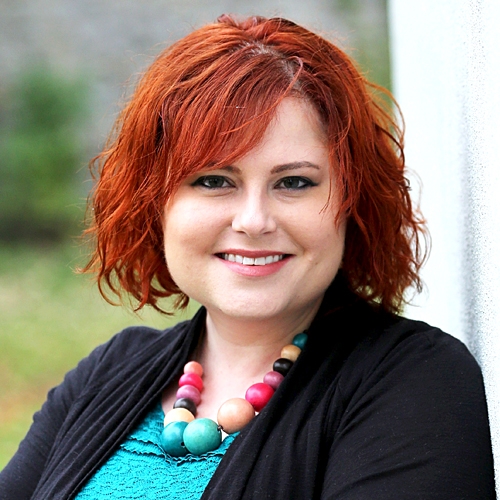
View Details / Enroll


Briana Tillman received her undergraduate degree in International Relations from the United States Military Academy at West Point. She has been a La Leche League Leader for 9 years and is a board certified lactation consultant. After spending 10 years as a stay-at-home mom, she is currently in her third year of medical school at Rocky Vista University College of Osteopathic Medicine in Parker, Colorado. She loves spending time with her husband and three kids—as a family they like to travel, go camping, and play string instruments in “family ensemble.”
Nick is a 3rd year medical student at Rocky Vista University College of Osteopathic Medicine. He has a background in mechanical and systems engineering but found his calling in medicine after volunteering for Health4Haiti in 2011. He lives in Colorado with his wife and they enjoy hiking, camping and fishing in the great outdoors.
Topic: What a Letdown: Exploring the Physiology of the Milk Ejection Reflex - [View Abstract]
Due to the global shortage of mental health professionals, many primary care providers have become the first-line responders to a wide variety of psychiatric concerns. While lactation consultants and breastfeeding support counselors are not called upon to diagnose and treat mental health disorders, they nonetheless often become enmeshed in the topic due to the holistic nature of breastfeeding management. An understanding of the major psychiatric topics that can arise during lactation consultation is therefore a valuable asset.
In this presentation, we will describe mental health benefits and drawbacks of breastfeeding, and explore the controversy surrounding the “breast is best” campaign as it regards maternal mental health. We will also briefly explore the pharmacological and non-pharmacological options in treatment of major psychiatric disorders (e.g. generalized anxiety, major depressive disorder, bipolar mood disorder, schizophrenia) as they relate to lactation. Finally, we will review the scientific literature related to potential long-term mental health effects of breastfeeding on babies.

View Details / Enroll


Angel Montfort, Psy.D., PMH-C is a licensed clinical psychologist, mother of four, and the founder of the Center for Maternal Mental Health, a therapy practice dedicated to serving women throughout all stages of motherhood. She has always gravitated toward treating women and became passionate about perinatal mental health while working in a Women's Clinic within a hospital setting. At first it was a way to meet the needs of her patients and it quickly led to an understanding of her own postpartum experiences, which deepened her connection to this work.
In her practice, Dr. Montfort addresses concerns such as postpartum depression, postpartum anxiety, birth trauma, perinatal loss, infertility, and adjustment to motherhood.
Dr. Montfort shares educational information on her Instagram account (@drangelmontfort) and her website (www.cfmmh.com) in an effort to validate and uplift moms who are struggling through a time that is expected to be the most joyous. Her expertise in perinatal mental health has been featured in a number of media outlets including Forbes, Healthline, and ScaryMommy. She believes that if we make space for both the highs and lows of motherhood, we set new moms up for a more balanced experience.
Alixandra Bacon is a Registered Midwife and settler living and working in Vancouver, BC on the traditional and unceded territories of the Musqueam, Squamish, Tsleil-waututh and Tsawwassen nations. Alixandra is President of the Canadian Association of Midwives, Past President of the Midwives Association of BC, and clinical faculty at the University of British Columbia, Faculty of Medicine. Alixandra is passionate about creating equitable access to excellent sexual, reproductive and newborn midwifery services for everyone. Alixandra is the recipient of the UBC Alumni Builder Award.
Dr Kathryn Gutteridge - First and foremost I am a mother, wife and latterly grandmother, my personal life has always largely informed my practice and I am always careful to remember that the women I meet are also like me in that they belong to a family.
I am a freelance consultant midwife one of the first in the UK and formerly employed at 2 very large and diverse maternity units. My career started in the 1970’s in nursing however midwifery was always my ambition and particularly the nurturance of midwifery led care.
I am a practicing psychotherapist interested in the emotional impact of childbirth; in part due to my own mothering experiences and research. I have worked closely with women to understand this phenomenon and researched emotional transition to motherhood.
Raising awareness for maternal mental health and particularly women surviving sexual abuse, I co-founded Sanctum Midwives campaigning on maternity care and sexual abuse. I have worked for many years raising awareness around the issues of maternal mental health and supporting both women and all those who work in maternity care situations. I believe positive mental health is the cornerstone to mothering and self fulfilment.
I have published widely in peer review journals but also in many books. My latest publication is ‘Understanding Anxiety, Worry and Fear in Childbearing Women’ which I edited and wrote 4 chapters. I am currently writing on the issues of child and adult female sexual abuse and its implications.
I care very deeply about women and their babies that they may come through their pregnancy and birth unharmed. I will continue to do this for the sake of midwives everywhere.
There is a growing awareness of the importance of perinatal mental health, and with the COVID-19 global pandemic, the need for screening is more important than ever. There is a knowledge and practice gap however when it comes to the practicalities of caring for mental health. This panel brings together midwives from different parts of the world and different practice settings to discuss what mental health care looks like in clinical practice and the importance of building mental health assessment and management into the standard structure of care provided to all birthing families.

View Details / Enroll
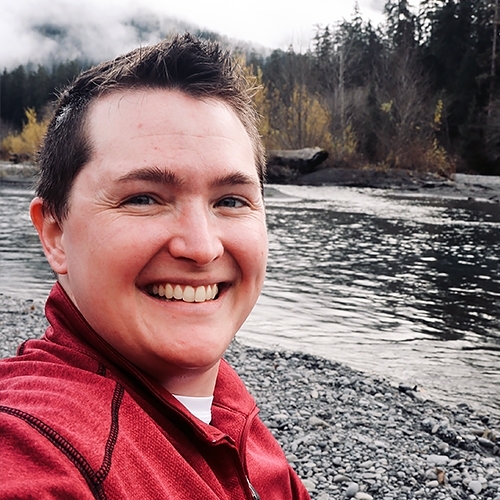

Robinson (Rob) Reed (pronouns: they/them) is a certified nurse midwife and international board certified lactation consultant providing full scope midwifery and lactation care at Swedish Midwifery First Hill in Seattle, WA. As a queer and nonbinary healthcare provider, Rob is passionate about providing sex-positive, gender-affirming, trauma-informed care to their patients. Rob draws from over a decade of mindfulness practice to integrate compassion and intentional presence with the busyness of clinical practice. In addition to precepting midwifery students, Rob offers mentorship to queer and trans future healthcare providers, and consults with hospital maternity units on issues around gender inclusivity in sexual and reproductive healthcare and lactation care.
LGBTQ families have long been made invisible in their experiences of building their families, and this extends to lactation care as well. Queer, trans, and nonbinary parents need and deserve support that centers the unique challenges they may face and celebrates their creativity and resilience. Trans men or nonbinary people who give birth may desire to chestfeed their infants. Non-gestational partners who choose to induce lactation to share in breastfeeding their infants need guidance and advice through this process. Trans women may find breastfeeding to be a strongly gender-affirming experience. Many lactation professionals have a desire to support LGBTQ patients, but lack knowledge of inclusive terminology or specific ways to provide affirming care. This session will review gender-inclusive language, hands-on skills, and clinical pearls to improve lactation care for LGBTQ patients.

View Details / Enroll
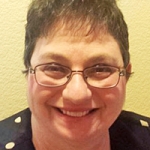

Debbie Albert, PhD, BSN, IBCLC, is a full time lactation consultant at UC Davis Med Center--working with all facets of their lactation service; including maternity floor, level IV NICU, pediatrics, PICU, and Employee Breastfeeding Support Program. She is also a prenatal instructor with their patient education program, nursing staff educator, and chairs the UCD Breastfeeding Task Force and the UCD Breastfeeding Support Program Committee. She received an Employee Excellence Award June, 2013 and June, 2015, and a Nursing Excellence Award in May, 2016. In addition, UC Davis programs have received IBCLC Lactation Care Awards and Sacramento Coalition and California State Coalition Breastfeeding Awards. Debbie has lactation experience in Florida, Texas, and California. She is Member of the LEAARC Board, a member of ILCA’s Equity Committee, and UCD Status of Women Committee. She is married to Dan Albert for 33 years, and has two sons, Josh (28), and David (24).
Raynauds is an illusive condition that tends to be confused with other conditions, misdiagnosed, and consequently rarely treated--causing the breastfeeding dyad to suffer. This program provides a review of the symptoms, medical and lactation resources, and clinical applications that facilitate most the effective treatment/comfort for the patient.

View Details / Enroll


Cecília Tomori is Associate Professor and Director of Global Public Health and Community Health at the Johns Hopkins School of Nursing with a joint appointment at the Johns Hopkins Bloomberg School of Public Health. She is a Hungarian American anthropologist and public health scholar whose work investigates the structural and sociocultural drivers that shape health, illness and health inequities. Dr. Tomori is an internationally recognized expert on breastfeeding, infant sleep and maternal child health.
During the COVID-19 pandemic, she has supported numerous organizations focused on maternal child health and health equity and advocated for equitable pandemic policies. She has authored three books on breastfeeding and reproduction, and published numerous articles on a range of public health and anthropological topics.
Topic: Resolving Cultural Conflicts in Nighttime Breastfeeding and Infant Sleep - [View Abstract]
Nighttime breastfeeding and proximate mother-infant sleep play a crucial role in sustaining lactation but present challenges for parents in settings where solitary infant sleep is the norm, and bedsharing is viewed as controversial and inherently dangerous. While separate parent-child sleep arrangements are a relatively recent cultural invention, they have become the dominant cultural norm, which also shapes medical infant sleep guidance in the U.S. and other similar settings. Recent breastfeeding promotion efforts, however, conflict with these cultural and medical imperatives for separate sleep. As more parents breastfeed, they find themselves falling asleep next to their babies. Some may fall asleep on unsafe surfaces in their attempt to avoid bedsharing, while others regularly bedshare in secret to avoid social stigma and other repercussions. To ensure both safety and wellbeing for infants and families, an integrated approach to nighttime breastfeeding and infant sleep will be recommended that incorporates evolutionary and cross-cultural perspectives.

View Details / Enroll

View Details / Enroll
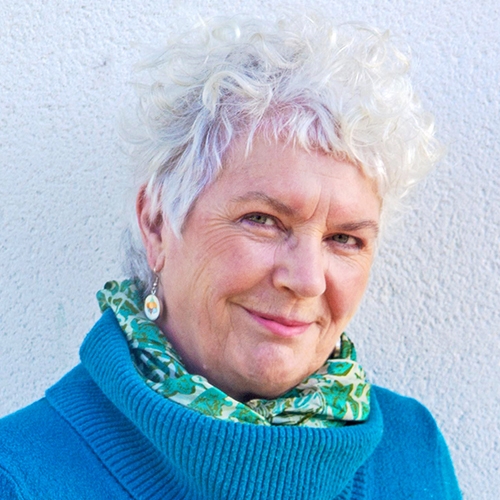
Resolving Labour Dystocia Through Improved Understanding of Birth Biomechanics

Molly O’Brien is an experienced midwife, with more than 20 years of clinical practice and has attended over a thousand births. She is also a hypnobirth and birth preparation teacher, an associate university lecturer, has created courses for midwives, campaigned for midwife led birth units and been a passionate student and enabler of normal physiological birth. She has worked in all areas of midwifery. Her favorite work was in the home environment and a Midwife Led Birth Unit. It allowed her to attend hundreds of undisturbed physiological births. It also gave her the opportunity to make a systematic exploration of midwifery skills and observations that can help resolve long difficult labours caused by a suboptimal position. The techniques and strategies that emerged from this time helped her revolutionize her own practice. She began to regularly witness dramatic progress as she put them to use in “difficult labours”. Now she teaches the course she developed for Birth Professionals, ‘Biomechanics for Birth’. She also taught for a master's course at the City of London College and runs a 3000 strong Facebook group Biomechanics for Birth for birth and women’s health professionals that carries a lively and informed discussion on a wide range of women's health issues.
In order to resolve labor dystocia in an effective and holistic manner, a deeper understanding of pelvic anatomy and physiology is required. Pelvic dynamics, the mechanical relationship between the pelvis and the rest of the body, and the dynamic interaction of the mother/baby dyad offer the chance to view birth through different eyes. This knowledge can help the health care provider to recognise activities and lifestyles that increase the chances of labour dystocia. Furthermore, this understanding will help providers identify signs of a mechanical disruption during the birth process. This presentation will offer timely techniques and positions, based on the principles of biomechanics, that increase space in the pelvis and avoid medical intervention.

View Details / Enroll


Molly Dutton-Kenny is an American & Canadian midwife. Trained in the USA in community homebirth midwifery, she now makes Canada her home and practices as a Registered Midwife with her loving family & community. She supports education for midwifery students through National Midwifery Institute, and community education around full spectrum pregnancy loss and abortion, respectful pelvic exams, and midwifery-based management and support of these experiences, centering home and holistic medicine as options for most people. You can read more about her work at www.mollyduttonkenny.com.
Pelvic Exams are so commonplace in midwifery practice that we often fail to appreciate their significance in our client’s lives. Pelvic exams have the potential for both trauma and trust-building in the midwife-client relationship.
Trauma manifests in our clients lives and bodies in a myriad of ways. Statistically, a majority of our clients have experienced various direct traumas in their lives, with a significant portion focused on pelvic trauma & assault. Additionally, clients hold the epigenetic trauma from historical wrongs in gynecology and treatment of bodies in various lineages as a result of white supremacy and toxic patriarchy.
All bodies deserve respectful care. When done carefully, pelvic exams have the potential to be safe, trust-building experiences with the benefit of seeking key medical information. Together, we will interrogate the common pelvic exam from a trauma-informed lens and consider our practices carefully. We will build strategies for respectful pelvic exams, including managing pain & anxiety in clients, what to do when clients do (and don’t!) disclose past trauma, avoiding triggers, and consider modifications to our own practices.
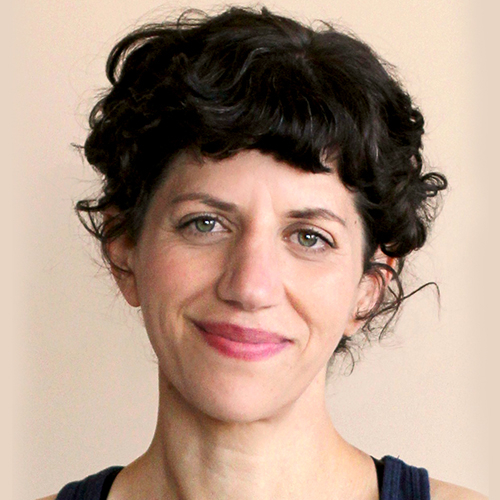
Returning to Sex Postpartum: Expectation, Preparation, Treatments for Pain and Dysfunction

Sonia is an occupational therapist specializing in pelvic floor therapy with a focus on the perinatal population.
In her practice, she uses awareness training, targeted exercise, breath work, yoga, manual therapy and lifestyle modification to help her clients find relief from conditions such as pelvic girdle pain, prolapse, dyspareunia, incontinence, constipation, diastasis recti and general deconditioning connected to pregnancy and postpartum. Sonia is skilled in helping her clients navigate the psychological and social impact that pelvic floor issues have on relationships and day to day life. In addition to her work as a pelvic floor therapist, Sonia teaches pre/postnatal yoga classes and leads new parent support groups. She is also a part of the continuing education program at Ancient Song Doula Collective and teaches workshops on the pelvic floor for Doulas and pregnant and postpartum people.
Sonia graduated from SUNY Downstate with a Master’s of Science in Occupational Therapy and received a Bachelor of the Arts in Dance from Oberlin College. Sonia trained in pelvic floor rehabilitation with Herman & Wallace Institute and Lindsey Vestal of the Functional Pelvis.
Sonia lives in Brooklyn, New York with her husband and two children.
Pain with sex and sexual activity postpartum is common. This can have a profound impact on quality of life and relationships during a period of time when birthing people are already managing seismic changes to both identity and intimate relationships. Birthing people deserve education around what to expect, how to prepare and how to address any discomfort and pain with return to sex postpartum. Too many providers are not given knowledge, tools and strategies to support their patients with resuming this important activity of daily living. In this interactive and embodied presentation, I will share how to talk about the return to sexual activity with your patients, what preparation may be helpful, and strategies for addressing and treating different categories of sexual pain.

Shoulder Dystocia: Prediction, Prevention, and Appropriate Response

Renowned expert Elizabeth Davis has been a midwife, reproductive health care specialist, educator and consultant for over 40 years. She is internationally active in promoting physiologic, undisturbed birth and is widely sought after for her expertise in midwifery education, legislation, and organizational development. She is the author six widely translated books on birth, sexuality, and female psychology, including “Orgasmic Birth: Your Guide to a Safe, Satisfying, and Pleasurable Birth Experience,” “The Rhythms of Women’s Desire: How Female Sexuality Unfolds at Every Stage of Life,” and the textbook “Heart & Hands: A Midwife’s Guide to Pregnancy and Birth,” now in an updated 2019 5th edition (see https://elizabethdavis.com for details). She served as Regional Representative and Education Committee Chair for the Midwives Alliance of North America (MANA), as President of Midwifery Education Accreditation Council (MEAC), and as midwife consultant to the State of California’s Alternative Birthing Methods Study. She is the recipient of the California Association of Midwives’ Brazen Woman Award, and Midwifery Today’s Lifetime Achievement Award. She is Co-founder of the MEAC accredited National Midwifery Institute, and author/instructor of Heart & Hands Coursework.
Shoulder dystocia is considered one of the most dangerous complications of birth, as corroborated by the high number of malpractice claims resulting from it. Despite this, experts cannot agree on what defines it, what causes it, or whether or not it is possible to predict it. As for treatment, the HELPERR mnemonic is standard of care, but is this truly the best response with fully mobile clients, or does it reflect the limitations of hospital birth with epidural anesthesia?
In this presentation, the physiology of undisturbed birth, including cardinal movements the baby must accomplish to minimize the likelihood of shoulder dystocia developing, will be explained, with an examination of how common hospital practices, such as the use of Pitocin during labor or maternal positioning in second stage, can undermine these. Because this complication carries a high degree of urgency, time-efficient techniques will be presented for both anterior shoulder dystocia and bilateral shoulder dystocia, with indications for follow up for the birthing person and the newborn.







